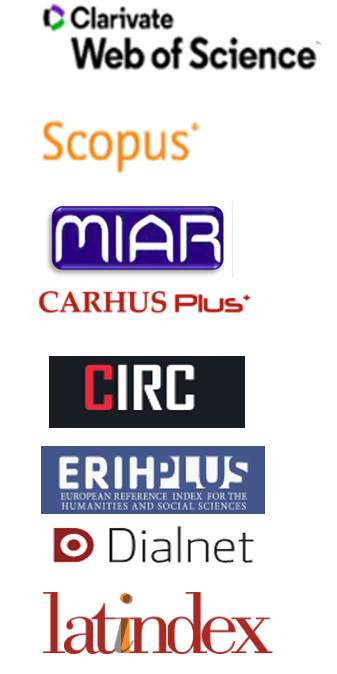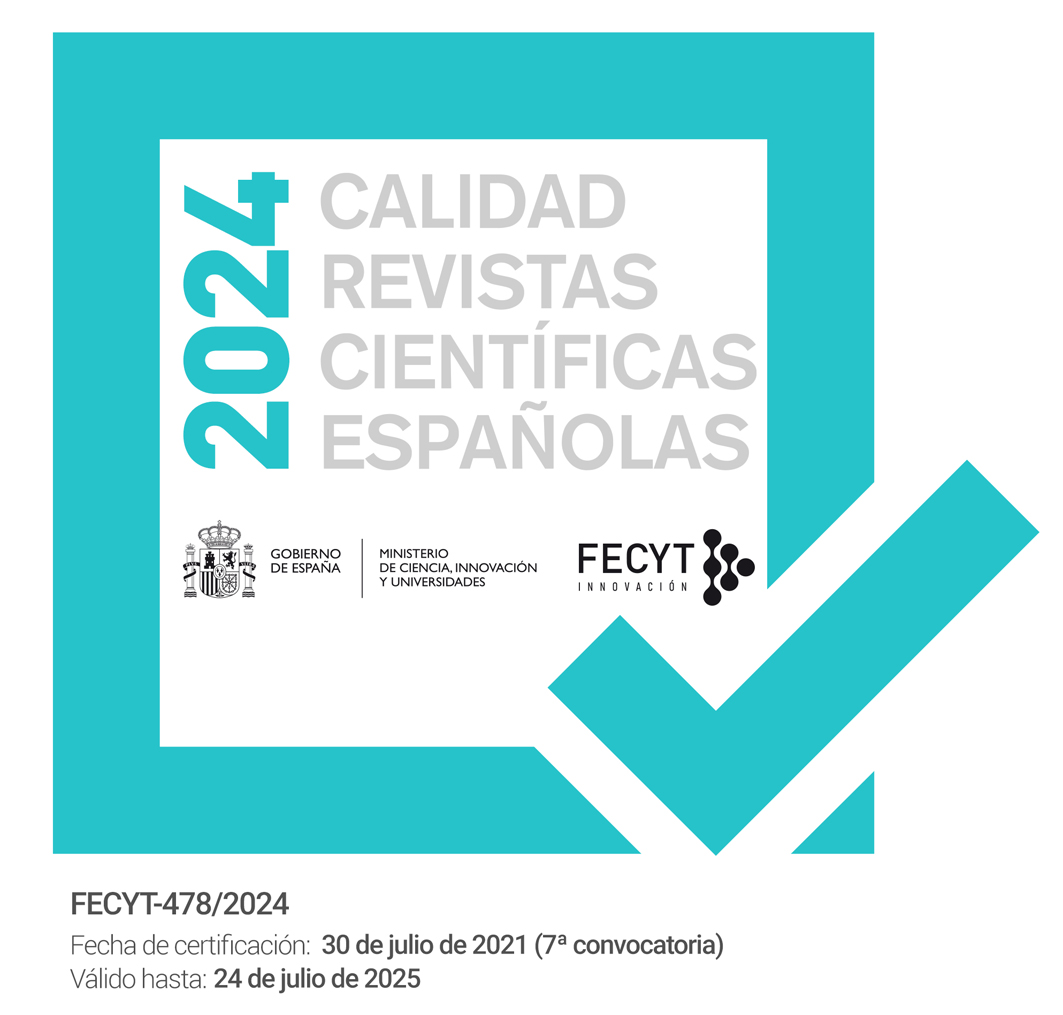Da Indústria, à Criatividade e às Artes: uma análise de tendências culturais na reconfiguração e gestão cultural de espaços industriais em Lisboa
Resumo
Este artigo explora a transformação de antigas zonas urbanas de património industrial de Lisboa em ecossistemas criativos, à luz das principais tendências culturais e mentalidades que estão a mudar a cidade. Analisamos a dinâmica atual, os projetos e a natureza desses novos sítios e como eles foram impactados pelas mudanças socioculturais, enquanto destacamos o seu património de base. Apoiada numa triangulação cultural aplicada a quatro espaços, os resultados apontam para um grande impacto das tendências culturais no desenvolvimento de comunidades criativas em antigas zonas urbanas de património industrial, principalmente em termos de projetos de identidade, criação de histórias, dinâmicas de cocriação e troca de conhecimento para soluções inovadoras. Este artigo contribui com uma nova perspetiva sobre a rede criativa lisboeta; uma compreensão do papel do patrimônio na reconfiguração de áreas industriais em comunidades criativas; oferece uma estrutura metodológica para avançar na pesquisa sobre análise de tendências em um cenário aplicado de espaços culturais e criativos, fornecendo uma ferramenta de auditoria de sua natureza, projetos e dinâmicas.
Downloads
Referências
AUGÉ, M. (1995). Non-Places: Introduction to an Anthropology of Supermodernity. London: Verso.
BURAWOY, M. (1998). “The Extended Case Method”, Sociological Theory, 16 (1).
CANTU, W., LOPES, C., GOMES, N. and PRADO, G. (2019). “The Gaze of Culture and Communication”. In Proceedings of the 6th Doctoral Design Conference | DDC’19: TRANSformation, DUARTE, E. (ed.), Lisboa: Edições IADE, 197–203.
CUNHA, P. (2003). “Cidade e programação cultural. O caso do Porto em 2001”, Sociologia, 13: 131–138.
DRAGT, E. (2017). How to Research Trends. Amsterdam: BIS Publishers.
EBEWO, P. and SIRAYI, M. (2009). “The concept of arts/cultural management: A critical reflection”, Journal of Arts Management Law and Society, 38: 281–295. https://doi.org/10.3200/JAML.38.4.281-295.
EDWARDS, J. and COIT, J. (1996). “Mines and Quarries. Industrial Heritage Tourism”, Annals of Tourism Research, 23 (2). https://doi.org/10.1016/0160-7383(95)00067-4.
FORNAS, J. (2000). “The crucial in between: the centrality of mediation in cultural studies”, European Journal of Cultural Studies, 3 (1): 45–65. https://doi.org/10.1177/a010862.
GIL, A. (2008). Métodos e Técnicas de Pesquisa Social. São Paulo: Atlas.
GOMES, N., COHEN, S., CANTÚ, W. and LOPES, C. (2021). “Roteiros e modelos para a identificação de tendências socioculturais e a sua aplicação estratégica em produtos e serviços”, Modapalavra E-Periódico, 14 (32): 228–272. https://doi.org/10.5965/1982615x14322021228.
GOMES, N., COHEN, S. and FLORES, A. (2018). “Estudos de Tendências: contributo para uma abordagem de análise e gestão da cultura”, ModaPalavra, 11(22): 049–112. https://doi.org/10.5965/1982615x11222018049.
GOMES, N. (2019). “Gestão da Cultura: estratégia e articulações no âmbito do branding e das tribos urbanas”, E-revista Logo, 8 (2).
GONÇALVES, S., GONÇALVES, J. and MARQUES, C. (2021). Manual de Investigação Qualitativa, Primeira. Lisboa: PACTOR - Edição de Ciências Sociais, Forenses e de Educação.
HOLT, D. and CAMERON, D. (2010). Cultural Strategy – using innovative ideologies to build breakthrough brands. Oxford: Oxford Press.
HALL, S. (ed.) (1997). Representation: Cultural Representations and Signifying Practices: London: SAGE & The Open University.
HIGHAM, W. (2009). The Next Big Thing. London: Kogan Page.
KONGSHOLM, L. and FREDERIKSEN, C. (2018). Trend Sociology V. 2.0. Hernin: Pej Gruppen.
LAKATOS E. and MARCONI, M. (1992). Metodologia Do Trabalho Científico. São Paulo: Editora Atlas.
LANGE, B., HARDING, S. and CAHILL-JONES, T. (2019), “Collaboration at New Places of Production: a European View on Procedural Policy Making for Maker Spaces”, European Journal of Creative Practices in Cities and Landscapes, 2 (2): 63–81. https://doi.org/10.6092/issn.2612-0496/9556.
MARTIN, B. and HANINGTON, B. (eds.) (2018). The Pocket Universal Methods of Design. Berverly: Rockport Publishers.
McCRACKEN, G. (2008). Chief Culture Officer. New York: Basic Books.
McINTOSH, A. and PRENTICE, R. Affirming Authenticity. Consuming Cultural Heritage. Annals of Tourism Research, 26 (3). https://doi.org/10.1016/S0160-7383(99)00010-9.
POWERS, D. (2019). Trends – The business of Forecasting the Future. Chicago: University of Illinois Press.
RODRIGUES, L.A. (2008). “Gestão cultural e seus eixos temáticos”, In Políticas Públicas de Cultura Do Estado Do Rio de Janeiro, Curvello, M.A. (ed.), Rio de Janeiro: UERJ/DECULT, 76–93.
TEIXEIRA, P. and NETO, J. (2017). “Uma proposta de tipologia para pesquisas de natureza interventiva”, Ciência & Educação, 23 (4): 1055–1076. https://doi.org/10.1590/1516-731320170040013.
VEJLGAARD, H. (2008). Anatomy of a Trend. New York: McGraw-Hill.
Os autores conservam os direitos de autor e de propriedade intelectual e garantem à revista Ge-Conservación o direito de edição e publicação do trabalho, sob a Creative Commons Attribution License. Este permite a partilha do trabalho, por outros, com o reconhecimento da autoria do trabalho e da publicação inicial nesta revista.
Os artigos podem ser utilizados para fins científicos e formativos, mas nunca com fins comerciais, expressamente, sancionados por Lei.
A informação existente nos artigos é da exclusiva responsabilidade dos autores.
A revista Ge-Conservación e os autores podem estabelecer, em separado, acordos adicionais para a distribuição não exclusiva da versão da obra publicada na revista (por exemplo, colocá-la num repositório institucional ou publicá-la em livro), com o reconhecimento da sua publicação inicial nesta revista.
É permitido e incentivado aos autores difundirem os seus trabalhos, electronicamente (por exemplo, em repositórios institucionais ou no seu próprio site) depois da sua publicação na revista Ge-Conservación, já que pode dar lugar a intercâmbios produtivos, assim como a citações mais amplas e mais cedo dos trabalhos publicados pelo autor.
Os dados pessoais fornecidos pelos autores são utilizados, unicamente, para os fins da revista e não serão proporcionados a terceiros.









